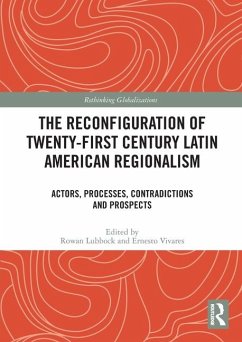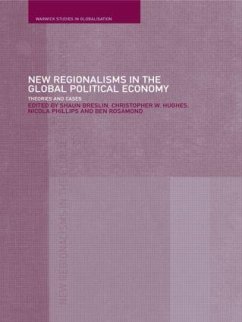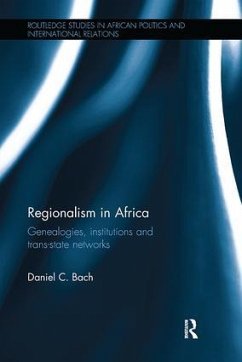
Post-Hegemonic Regionalism in the Americas
Toward a Pacific-Atlantic Divide?
Herausgeber: Briceno-Ruiz, Jose; Morales, Isidro
Versandkostenfrei!
Versandfertig in 1-2 Wochen
55,99 €
inkl. MwSt.

PAYBACK Punkte
28 °P sammeln!
Regionalism in Latin America and the Caribbean has experienced transformations over the last few years. After more than a decade of a hegemonic model based solely on free-market principles, the regional and global transformation that occurred in the first decade of the new millennium modified the way of understanding economic development and the insertion of regional blocs in global affairs. Old initiatives have been reconsidered, new schemes have emerged, and new principles going beyond trade issues have modified the norms and processes of regional economic integration. This book reviews thes...
Regionalism in Latin America and the Caribbean has experienced transformations over the last few years. After more than a decade of a hegemonic model based solely on free-market principles, the regional and global transformation that occurred in the first decade of the new millennium modified the way of understanding economic development and the insertion of regional blocs in global affairs. Old initiatives have been reconsidered, new schemes have emerged, and new principles going beyond trade issues have modified the norms and processes of regional economic integration. This book reviews these recent transformations to depict and explain the new trends shaping regional blocs and cooperation in the Americas.














